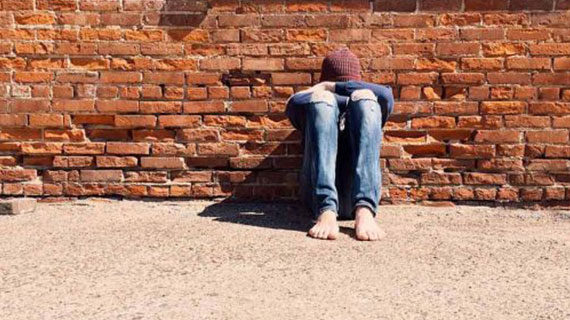According to a 2015 Pew Research study, 92% of teens reported going online daily (with 24% saying they go online “almost constantly). We now live in a world where the miles between us easily disappear as friends chat, share pictures, and message one another online.
This access means young people can create connections, but they may also have to contend with some pretty negative things, from cyberbullying to body image issues to social media anxiety. In a selfie-obsessed world where trolls can use 140 characters to cut someone down anonymously, what’s the real impact of social media on our boys?
Body Image
According to Netsanity, boys can be strongly influenced by images on social media. “Boys will compare themselves to other boys on social media or even men that they see on TV and in print ads. Today, boys as young as 6-8 are already developing issues with their body image because of things that they have seen through social media, television, and even from offline experiences, the article explains.
It’s largely a matter of comparison to these false ideals – or unattainable ones for young men who are still growing and developing. Social media allows them to make comparisons between their bodies and their friends’ as well as celebrities where none should be made. With impossible standards being set through filtered images of a seemingly perfectly-staged life, it’s not surprising that boys can begin to develop an unhealthy body image.
Anxiety
According to the Department of Health and Human Services, about 3 million teens ages 12 to 17 had had at least one major depressive episode in 2015. About 30% of girls and 20% of boys – 6.3 million teens – have had an anxiety disorder, according to the National Institute of Mental Health.
Experts agree that this is likely on the low end since young people, especially boys, often don’t talk about depression and anxiety issues to parents or friends. Social media can create connectedness, but it can also isolate and make feelings of loneliness feel more intense as we compare our lives to those we see reflected online.
It’s important to remember that social platforms are a human highlight reel of everyone’s life with posts about game day victories, prom proposals, and summer vacations. This can make boys feel like they aren’t keeping up with their peers and create a false sense of “Fear Of Missing Out on what everyone else seems to be doing.
Cyberbullying
According to one recent study, an incredible 25% of teenagers say that they have been a victim of repeated bullying on their cell phone, on the Internet, or both. When you open that number up to tweens to 20-somethings, it jumps to an unfortunate 52%.
To make matters worse, more than half of the young people who responded to one survey said that they don’t talk to their parents when they become the victims of these types of incidents. When discussing cyber bullying with young people, it’s important to make them aware of a few problems that they may not even realize are going on. Cyber bullying isn’t merely limited to harmful interactions or hurtful messages on social media and instant messengers. It can also involve things like impersonation, where one student posts comments under the guise of another’s identity in an attempt to make them look bad.
What Should You Do?
Social media isn’t going anywhere; among American teens ages 13 to 17, 71% use Facebook, half use Instagram, and 40% use Snapchat. It’s a part of our lives. As a parent, it’s important to set a good example and monitor your own social media presence and usage.
Be present with your boys and create phone-free zones such as dinner time or until homework is complete.
Keeping an eye on his social media is important, but real conversation is even more so, as even the most practiced eye finds it hard to spot signs of depression in our social media.
Seek out expert help when you need it through therapists and counselors, or, in more intense cases, call us. The Paul Anderson Youth Home is a Christian transformative organization that recreates healthy homes through enduring relationships, routines, and tough love. Since 1961, we have been shaping men of character. Our desire is to offer a fresh start for troubled teenagers who need to change their lives and have reached a “dead end. For parents in crisis, the PAYH is a sanctuary. Contact us at 1-800-559-PAYH (7294) or visit our website at payh.org to see how we can help.
Stay Updated
Sign up for our monthly newsletter and weekly devotional










